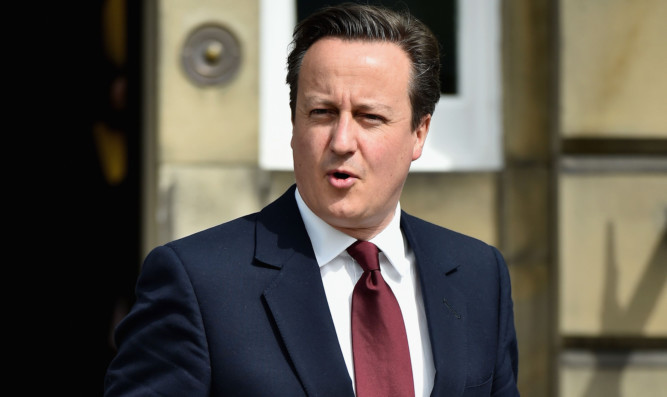
Tories free to set the agenda again.
From how much tax you pay and who can see your emails to more airy-fairy but equally vital stuff like freedom of speech, this week’s Queen’s Speech will affect everyone.
It’ll be the first purely Conservative programme in nearly 20 years and the Tories are determined to make an impact.
Expect to hear lots of ministers on the airwaves in the coming days explaining how they are now “free” to do things previously vetoed by the Lib Dems in coalition.
That will include changes to the right to strike, benefits cuts and a revived “Snoopers Charter”.
But first will come the constitution.
Before the end of the week, both the EU Referendum Bill and the Scotland Bill built around the Smith Commission process will begin their legislative journeys through parliament.
The Lib Dems scuppered the last government’s attempts to pass a law ensuring there will be a vote on whether Britain stays in the EU or not.
The new administration has no such worries and, with all the Labour leadership candidates now falling in line behind a referendum, it should face a smooth passage.
The Lords, where the Tories have no majority, could meddle but convention says the upper house can’t veto something promised in an election manifesto.
The EU Referendum Bill is expected to be first out of the traps but the Scotland Bill will be close behind.
The SNP are clear they want more powers for Holyrood than the draft Scotland Act includes.
David Cameron and new Scottish Secretary David Mundell are adamant that, while they are open to further devolution for now, they’ve no plans to add to the Smith proposals.
First Minister Nicola Sturgeon said: “It is an early test of the UK Government’s good faith that the Scotland Bill lives up to both the spirit and the letter of the Smith Commission.
“The Scottish Government has already set out the shortcomings of the draft legislation published in January and submitted a number of detailed amendments to the UK Government to bring their original proposals into line with Smith, so there can be no possible excuse.”
Opponents will be quick to criticise them if they don’t attempt to include some reference to full fiscal responsibility where Scotland raises all the money it spends as mentioned in their manifesto but which economists claim could cost the country billions.
Another controversial move will be the Communications Data Bill. This was dubbed the “Snoopers Charter” when the Lib Dems torpedoed Theresa May’s last try to bring it in as it would require internet and mobile phone companies to keep records of everyone’s web use, emails, phone calls and texts so the security services could track terror suspects.
It’ll face stiff opposition from Tory backbenchers like David Davis keen to protect individual freedoms.
With a slim majority, it’ll take careful piloting to get it passed.
The same sorts of Conservatives are likely to baulk at plans to repeal the Human Rights Act.
The government wants to introduce a British Bill of Rights instead which would put the Supreme Court in London in charge of human rights rulings instead of the European Court of Human Rights in Strasbourg, which has recently been criticised for blocking the deportation of terrorist suspect Abu Qatada and told the Government to give prisoners the right to vote.
Justice Secretary Michael Gove will not just have to overcome a handful of his own backbenchers to get his way on this one, however.
When Tony Blair set up the Scottish Parliament, he included a rule it can’t act contrary to the Human Rights Act.
That will allow Sturgeon to veto any attempt to bin it.
She said: “To scrap the Human Rights Act would be an appallingly retrograde step.”
Also on the agenda will be a jobs bill likely to put limits on how long young people can claim the dole and cut the benefits cap to £23,000, despite only contentious evidence the current £26,000 ceiling has actually forced many people back to work.
Red tape and the right to strike will come under attack in the Enterprise Bill and fox hunting might get a mention if the Tories decide to see through their manifesto promise to allow a free vote on the controversial issue early on.

Enjoy the convenience of having The Sunday Post delivered as a digital ePaper straight to your smartphone, tablet or computer.
Subscribe for only £5.49 a month and enjoy all the benefits of the printed paper as a digital replica.
Subscribe